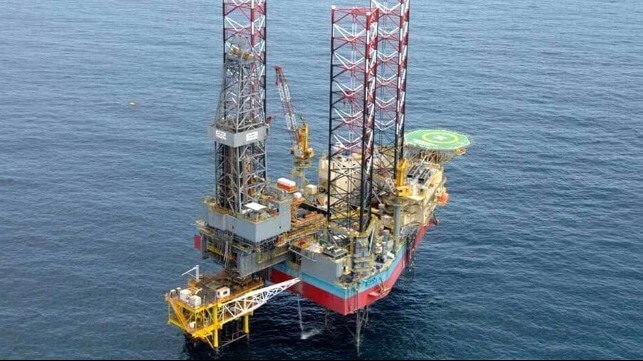UK's CMA Confirms Competition Concerns for Offshore Drilling Merger

The UK Competition and Markets Authority confirmed its concerns regarding the proposed merger of Maersk Drill and Noble Corporation saying that they believed it could result in reduced competition and increased operating costs for oil and gas producers in the North Sea. The companies had previously said they expected the UK authority to raise concerns and now they have five days to respond, proposing solutions to address the issues raised by the regulators.
Maersk Drilling and Noble are two of what the CMA called four primary service providers in the North Sea. They noted that the two companies are frequent competitors for contracts. The CMA said after completing a Phase 1 investigation that had begun in February 2022, that it is concerned that the combined businesses would not face sufficient competition after the merger.
The companies announced their plans to combine their operations in a merger of equals in November 2021. Citing the continued difficult market conditions, they said they believed the combination would create a company with the scale, capabilities, and resources to address the changing market. When they announced the merger, they reported that Maersk Drilling currently had a fleet of 19 offshore drilling rigs and specializes in harsh environment and deepwater operations while Noble Drilling had a fleet of 20 offshore drilling units, including 12 drillships and semisubmersibles as well as eight jack-ups.
“Offshore drilling services are critical for oil and gas producers,” said Colin Raftery, Senior Director of Mergers at the CMA. “We’re therefore concerned that the loss of competition that this deal would bring about could result in higher prices or lower quality services, increasing operating costs for oil and gas producers in the UK North Sea.”
The investigation primarily focused on the two businesses’ overlapping activities in the supply of jack-up rigs commonly used for offshore drilling by UK customers in the North Sea.
Ten days ago, the companies reported that they expected it would be necessary to divest certain jack-up rigs to obtain conditional antitrust clearance from the CMA. They said in discussions with the CMA they had formed a tentative plan proposing the sale of five vessels.
Maersk Drilling on April 19 announced that it has agreed to sell one of its jack-up rigs, Maersk Convincer, currently undertaking a drilling program with Brunei Shell Petroleum Company. This sale was not part of the proposed remedy to gain UK approval and the company noted that after the closing of the sale, Maersk Drilling’s rig fleet will consist of 10 jack-up rigs, all of which are suited for operations in harsh environments, and eight floaters.
Maersk and Noble have five working days to respond to the CMA by providing a plan to address the concerns and then the CMA will reply within another five working days. If they are unable to address the CMA’s concerns, the deal will be referred for an in-depth Phase 2 investigation, to be carried out by a group of independent CMA panel members.
The companies previously received unconditional approval for the merger from the competition authorities in Brazil, Norway, and the Republic of Trinidad & Tobago. Other than the UK, they also require pre-closing merger control clearances for Angola, which they expected would announce its decision this month. Assuming they can gain these two final approvals, the companies expect the closing of the merger will occur in mid-2022.
Last month, the CMA effectively blocked the merger of two of the leading manufacturers of cargo handling equipment for ports, Cargotec and Konecranes, also citing concerns over reduced competition. The companies abandon their plans to merge citing the ongoing opposition from global regulators even after they had proposed divestments to address the objections.
